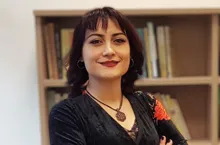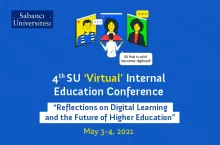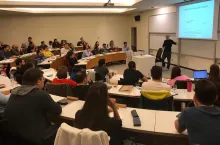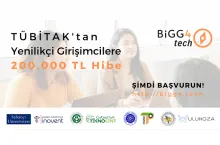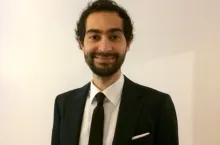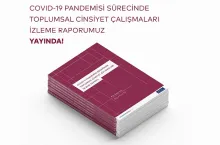Written by Aslı Aygüneş and Oğuz Can Ok, assistants at Sabancı University Gender and Women's Studies Center of Excellence (SU Gender), the “Monitoring Report on Gender Studies During The COVID-19 Pandemic” was a result of the monitoring activities carried out by SU Gender between March-September 2020.

The report prepared by reviewing national and international sources emphasized the importance of increasing the visibility of the research on gender-based inequalities during the COVID-19 pandemic, global and local data collection and monitoring related to this subject, and performing advocacy activities in light of the data. According to studies presented in four sections in the report, violence against women increased during the pandemic period in Turkey, access to basic rights such as healthcare and education was disrupted, and participation in employment and economic inequalities remained negative.
Hülya Adak, the Director of SU Gender, who invited the entire public to be a part of the solution with the report, said, “We know and see from the reports and the examples we observed during COVID-19 that violence against women, gender-based violence, and harassment increased exponentially during the time when we were in quarantine. As SU Gender of Sabancı University, which is one of the first institutions to draw up a sexual harassment directive in Turkey in 2007 and to host a Sexual Harassment Committee, we wanted to draw attention to this situation at such a time. Additionally, we have started organizing interviews, webinar series, and festivals on ‘Sexual Harassment and Gender-based Violence, Pandemic, Memory and Gender, Digital Theater, Cinema and Art-based Gender Justice’ to be able to conceptualize the current situation together with all our stakeholders. With this report, we have tried to examine the experiences of the pandemic process, the solutions produced against the problems, and the areas that are already waiting for solutions/solidarity.”
THE MONITORING REPORT CONSISTS OF FOUR SECTIONS
“The Monitoring Report on Gender Studies During The COVID-19 Pandemic” consists of four main sections. The section titled Gender-based Inequalities in The Shadow of The Pandemic addresses different dimensions of the perspective of gender during the pandemic period, experiences of gender inequalities, and advocacy for gender equality. The other sections of the report -unlike the first part- focuses on the common issues identified by the studies reviewed during the preparation of the monitoring report in the light of data and reports specific to Turkey.
Additionally, more holistic inferences are made by supporting local data with data collected globally. The section titled Gender-Based Violence and Pandemic shares the results of data collection studies on violence against women and LGBTI+ individuals, making these inequalities visible. The section titled Access to Rights and Pandemic addresses the gender-related problems that individuals face while trying to exercise their health-related and educational rights, the quick solutions produced to solve these problems, and the policy proposals put forward to permanently solve these problems. Finally, in the section titled Economic Freedoms and Pandemic, the economic consequences of gender-based inequalities are investigated in depth.
The noteworthy findings of the studies included in the monitoring report are as follows:
- Violence, inequalities, and right violations did not decrease during the pandemic, nor did the activities that opposed these violations in the field of advocacy, and nor did the need for these activities. On the contrary, with the new circumstances imposed by the pandemic, this need gradually increased.
- According to a report by the United Nations Women titled “From Insights to Action: Gender Equality in The Wake of COVID-19” published in May 2020, approximately 243 million women were subjected to violence in countries under quarantine in 2019-2020, and this number is expected to increase in parallel with possible security, health, and economic problems due to the pandemic.
- According to a study conducted by the Socio-Political Field Research Center (SAHA) with 1,843 women living in 28 different cities, violence against women increased by 27.8% during the pandemic period in Turkey. 43% of the women stated that they had experienced violence in quarantine.
- In SAHA's study, women were also asked about the violence suffered by children. 19.3% of the women said their children had been subjected to violence. 45.9% of the respondents said the quarantine process had triggered the violence against children and women.
- According to Bianet, 140 women were killed, 135 suspected deaths occurred, 51 women were raped, 84 women were harassed, and 445 women were subjected to violence in the 6-month period from April to September.
- According to a report published in August by the United Nations Children's Fund (UNICEF), at least one-third of school-age children worldwide, about 463 million children, were no able to access distance education.
- In Turkey, it was reported in different studies that disadvantaged children and girls had problems accessing education with the transition to distance education. According to the “TEGV Children’s Distance Education Status Assessment Report”published by the Educational Volunteers Foundation of Turkey (TEGV) in May, 59% of children use mobile phones and 50% use computers to access education, while 4% do not use any tools. In the report published by the Organization for Economic Co-operation and Development (OECD) on access to education during COVID-19, it was stated that only one out of every 4 students in Turkey had a computer.
- Research conducted by KONDA in Turkey showed that women's labor allocated for domestic work increased more than 2 times when compared to 2018 and 2020 data. In parallel, a study conducted by the UN Women in April with 1,508 individuals in Turkey found that 77.6% of women devoted more time to cleaning and tidying the house, 28.7% to support the elderly, 60% to cook, and 41% to grocery shopping compared to the pre-pandemic period.
Click here to access the full report.






